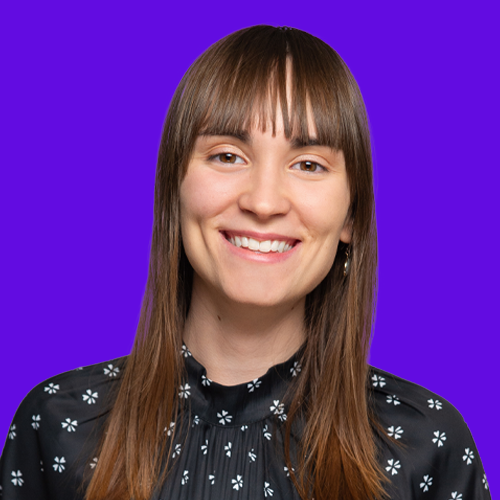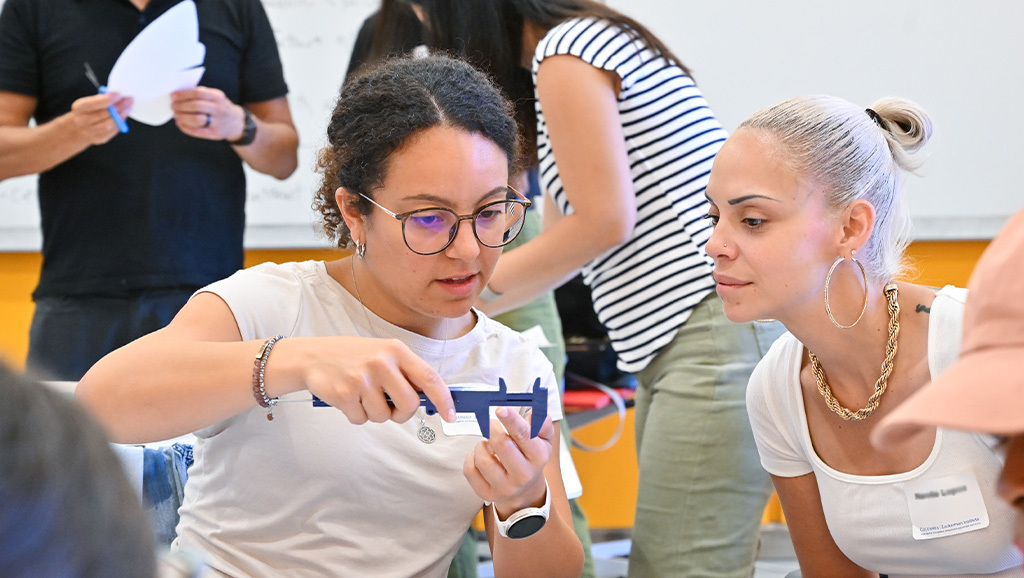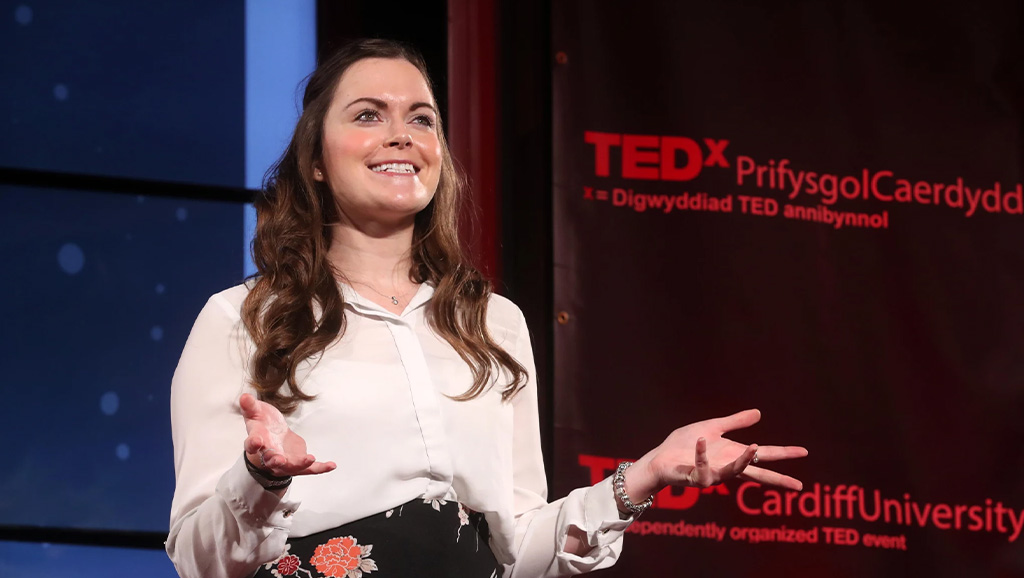News & Insights
IBB NextGen Students Dive into Neuroscience at FENS Forum
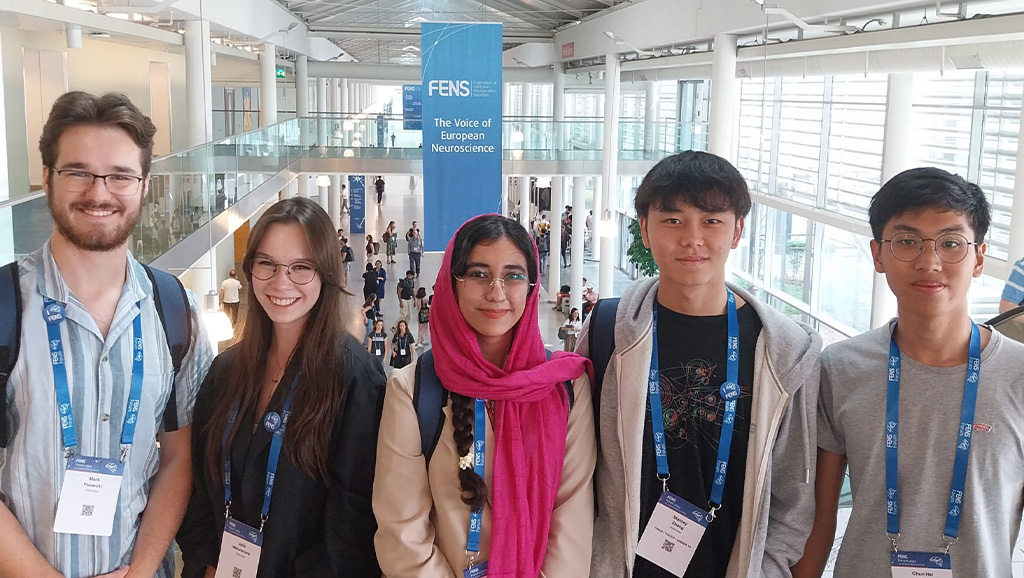
The International Brain Bee (IBB) is a culmination of regional and national Brain Bee competitions that engages high school students with neuroscience, fostering an interest that can help guide their future professional pursuits. Through a multifaceted program, the IBB advances the Dana Foundation’s Education program goal by introducing students to the diverse applications of neuroscience.
With the support of a Dana Foundation grant in 2023, the IBB piloted a two-event format. The first event was the virtual World Championship, which attracts student competitors from around 30 countries. The second event—the IBB NextGen program—was introduced last year to provide the top competitors with an in-person opportunity to enrich their knowledge of neuroscience and enhance their professional development by attending the 2024 FENS Forum. Coordinated by the Federation of European Neuroscience Societies (FENS), this year’s meeting was held last month in Vienna, Austria. International Brain Bee champions Chun Hei Tai, Stanley Zhang, Kimia Ahmadi, Julia Nakoneczna, and Mark Piasecki—all who are between the ages of 17 and 18—participated in the IBB NextGen program, representing Hong Kong, New Zealand, Iran, Poland, and Canada, respectively.
The 2024 FENS Forum, the largest international neuroscience congress in Europe, brought together over 7,000 participants to learn about recent discoveries and celebrate neuroscience. The biannual meeting is organized by FENS as part of its effort to bring together the scientific community and advance neuroscience research and education within Europe and beyond.
“The plenary lectures, roundtables, poster sessions, and other activities allowed me to network with leading neuroscientists, get a glimpse of the entire neuroscience landscape today, and learn the most recent developments in the field—which textbooks do not offer,” said Chun Hei Tai, an aspiring bioengineer from Hong Kong who is interested in neuroimmune disorders.
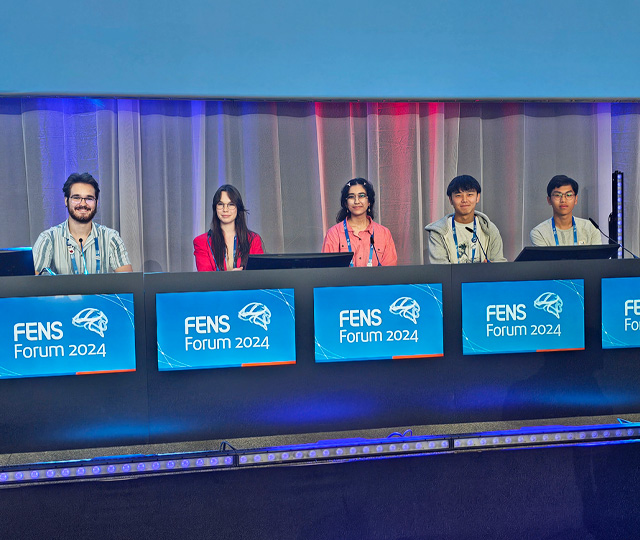
Kimia Ahmadi from Iran agreed, saying, “The conference itself was a hub of knowledge exchange, featuring insightful talks, stimulating discussions, and networking opportunities that broadened my perspective on the field.” As an example, Ahmadi mentioned a presentation on transcription factors that inspired her to further explore the world of molecular biology.
For eight days, the high school students explored the world of neuroscience and the city of Vienna. The students were presented to the conference at the FENS Forum Opening Ceremonies, mentored by scientists and professionals, toured research labs, and participated in group discussions and activities. The goal of the IBB NextGen program went beyond education, however, and encouraged the students to have a fun and culturally enriching experience.
The IBB NextGen students also gained perspective on their future careers. “The opportunity to speak, exchange opinions, and listen to not only scientific insights but also personal stories of remarkable individuals in the field of science left me with many reflections,” said Poland’s Julia Nakoneczna, who is interested in studying stroke and brain tumors. “It showed me that my path doesn’t always have to—and won’t always—follow the plan I envisioned, and that being open to opportunities is crucial.”
At the meeting, students also had the opportunity to collaborate, practice their presentation skills, and forge meaningful friendships which will guide and empower them as they continue their education.
Mark Piasecki, from Canada, emphasized how he learned about the significance of science communication. “Now I feel I have a good sense of how to keep listeners who might have never heard of my research both interested and engaged when I have to present my own research!” Piasecki hopes to study neurodegenerative diseases and become a researcher and educator in the future.
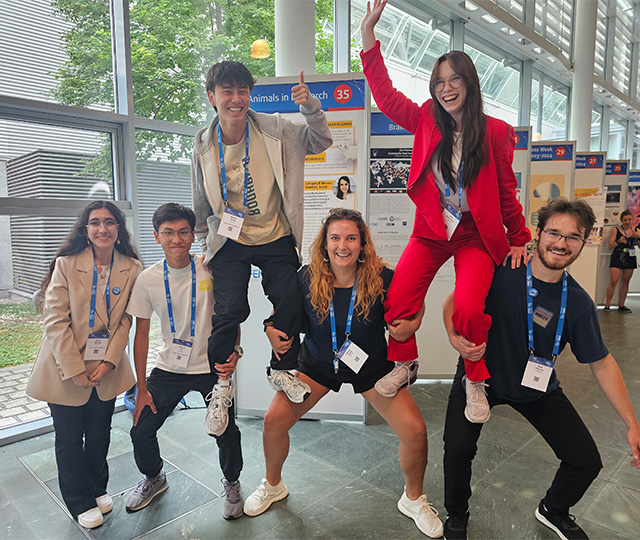
Reflecting on the experience, New Zealand’s Stanley Zhang, who plans to study medicine and the ways human activities can impact the spread of disease, expressed the importance of programs such as the International Brain Bee. “The IBB and its offshoot NextGen program are both necessary to, firstly, encourage high school students to take an interest in neuroscience and realize that an elementary grasp of it, like mine, is definitely within their reach—and then enable them to develop their knowledge to a higher level.”
After attending the 2024 FENS Forum, the NextGen participants felt their education had been enriched. Ahmadi highlighted that programs such as IBB NextGen and the FENS Forum “foster interest in neuroscience, promote critical thinking skills, and encourage collaboration among students with similar interests.”
The opportunity to attend the European conference through the International Brain Bee inspired these students to continue their educational growth with fresh perspectives on scientific research and the scientific community. “I believe that IBB NextGen is an incredible initiative that rewards the hard work of students who, at a young age, dared to explore the intricate world of neuroscience,” said Nakoneczna. A bright future awaits each of these talented high school students.
